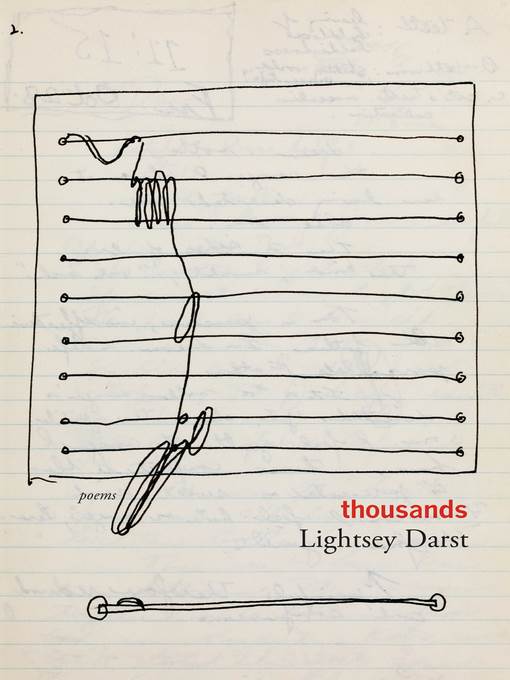
Thousands
- اطلاعات
- نقد و بررسی
- دیدگاه کاربران
نقد و بررسی

Starred review from November 6, 2017
In her third collection, Darst (Dance) regards memories and their respective emotions as mental scars from which arise an accompanying ache that can reveal suppressed aspects of one’s personality. Darst writes of a wife’s admission of infidelity and the subsequent fallout, wielding words like knives and inciting a visceral reaction. “I’m always seeking a haunting// That was someone’s husband,” the speaker proclaims. The pain interwoven with a particular memory can prompt self-punishment and self-reflection. For example, in the second of the book’s five sections, Darst writes, “I slipped my skin/ walked off & left myself & left// feeling the first snow of the season falling/ cold on my face running to catch that downtown bus leaving.” The unadorned language and its languorous rhythm enhance the imagery, in addition to evoking battling feelings of simultaneous freedom and isolation. Darst asks, “Dear spirit, what shall I do with my life?/ Came back from the well: What shall I do with my death?” For Darst, to remember is to claim ownership of one’s pain and, by extension, one’s humanity.

November 15, 2017
The speaker animating this second collection from Darst (afterFind the Girl) is decidedly restless, moving in diary-like sections from Minneapolis on 10/31/11 to Durham, NC, in summer 2014 to get beyond the quotidian and satisfy an amorphous but sharply felt desire for something more. "Oh you're not that bad a man/ I'm not that bad a bitch.// But I have the look of the unloved wife," she says at one point. And elsewhere, "I have to do it and I have to do it alone." Related in meditative, crystal-cut language, her realization that she's fallen into things pushes her onward, and just as her self-reflection gets wearing, she opens up to the world. VERDICT A poet to watch; poetry lovers will want to dig in.
Copyright 2017 Library Journal, LLC Used with permission.




دیدگاه کاربران